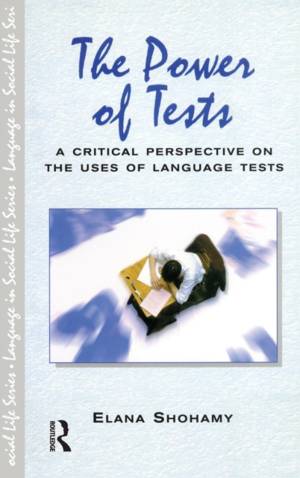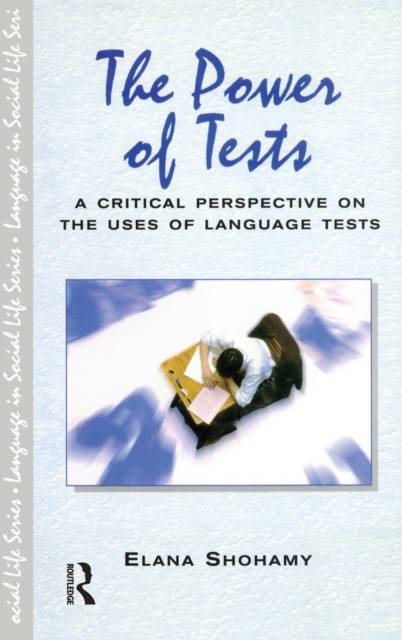
Door een staking bij bpost kan je online bestelling op dit moment iets langer onderweg zijn dan voorzien. Dringend iets nodig? Onze winkels ontvangen jou met open armen!
- Afhalen na 1 uur in een winkel met voorraad
- Gratis thuislevering in België vanaf € 30
- Ruim aanbod met 7 miljoen producten
Door een staking bij bpost kan je online bestelling op dit moment iets langer onderweg zijn dan voorzien. Dringend iets nodig? Onze winkels ontvangen jou met open armen!
- Afhalen na 1 uur in een winkel met voorraad
- Gratis thuislevering in België vanaf € 30
- Ruim aanbod met 7 miljoen producten
Zoeken
€ 259,45
+ 518 punten
Omschrijving
Language in Social Life is a major series which highlights the importance of language to an understanding of issues of social and professional concern. It will be of practical relevance to all those wanting to understand how the ways we communicate both influence and are influenced by the structures and forces of contemporary social institutions.
In all modern societies individuals are subject to tests, whether to enter educational programs, to pass from one level to the next or to grant certificates to practice. Yet, tests are powerful tools which are often introduced in undemocratic and unethical ways as disciplinary tools for carrying out various policy agendas. Tests can be detrimental to people's lives as they are capable of affecting and defining the knowledge and behaviour of those who are being tested. The Power of Tests applies a critical perspective of language tests by examining their uses and consequences in education and society and by viewing tests not as isolated events but rather as embedded in social, educational and political contexts. The book is divided into four parts: the first part establishes the power of tests through echoing the voices of test takers, describing the features of the power of tests, and the temptations that tests offer to bureaucrats who use them for power and control. The second part reports on studies that provide empirical evidence about intentions and effects of a number of large scale language tests. The third part interprets the results by examining their consequences on education and society, arriving at a model of tests' use. The final section of the book offers strategies for controlling and minimising the misuses of tests by introducing the notion of Critical Language Testing which calls for the examination of the consequences and misuses of tests, monitoring of power and pointing to their unethical uses. It also provides a comprehensive discussion of the responsibilities of language testers, including a new Code of Ethics, as well as strategies for guarding and protecting the rights of test takers.Specificaties
Betrokkenen
- Auteur(s):
- Uitgeverij:
Inhoud
- Aantal bladzijden:
- 208
- Taal:
- Engels
- Reeks:
Eigenschappen
- Productcode (EAN):
- 9781138138353
- Verschijningsdatum:
- 17/12/2015
- Uitvoering:
- Hardcover
- Formaat:
- Genaaid
- Afmetingen:
- 156 mm x 234 mm
- Gewicht:
- 471 g

Alleen bij Standaard Boekhandel
+ 518 punten op je klantenkaart van Standaard Boekhandel
Beoordelingen
We publiceren alleen reviews die voldoen aan de voorwaarden voor reviews. Bekijk onze voorwaarden voor reviews.











